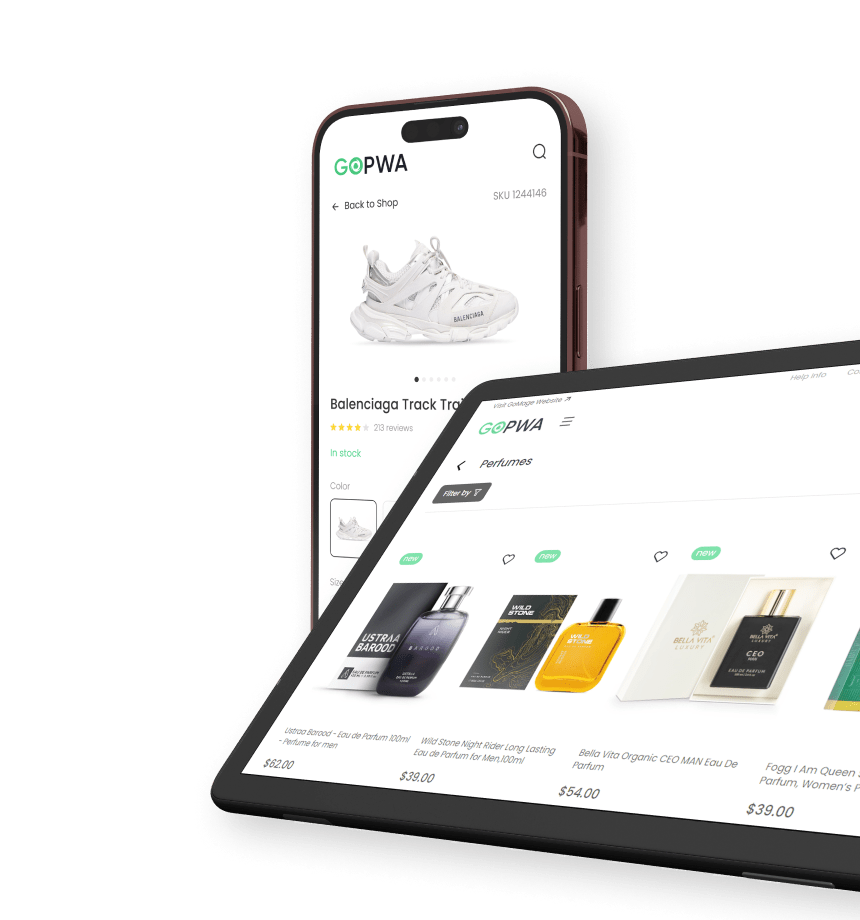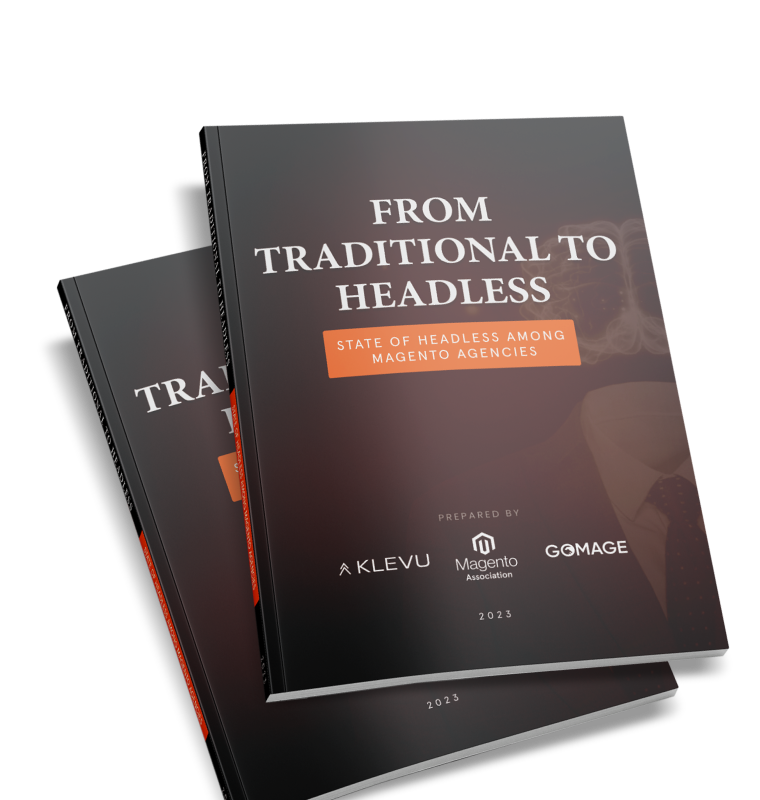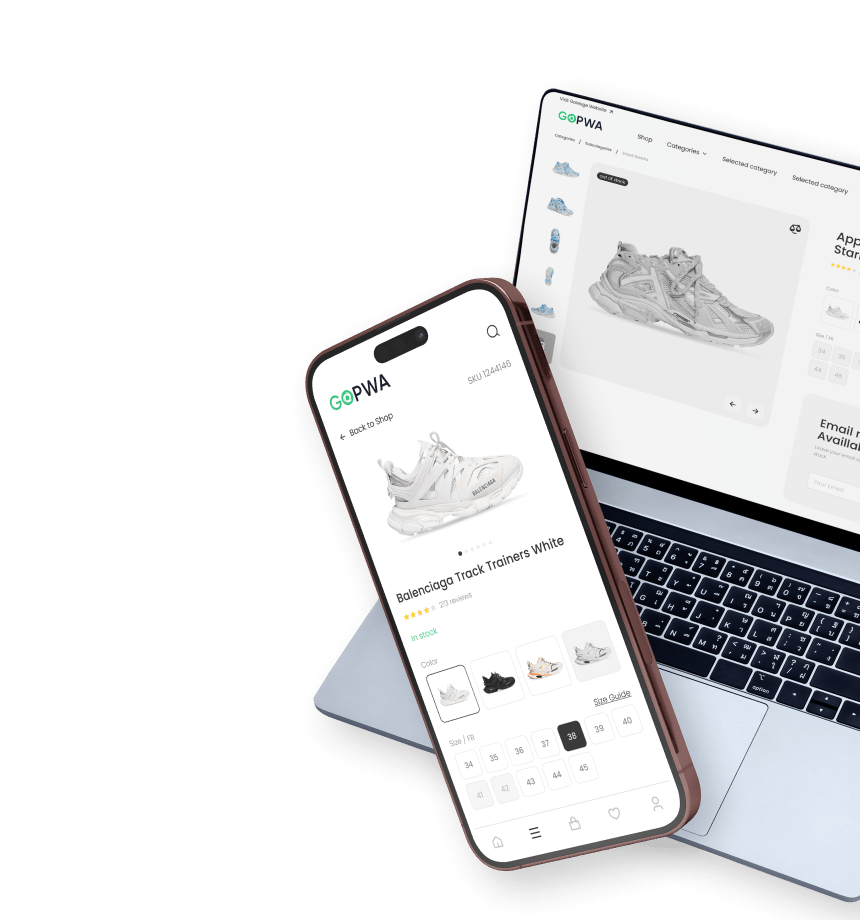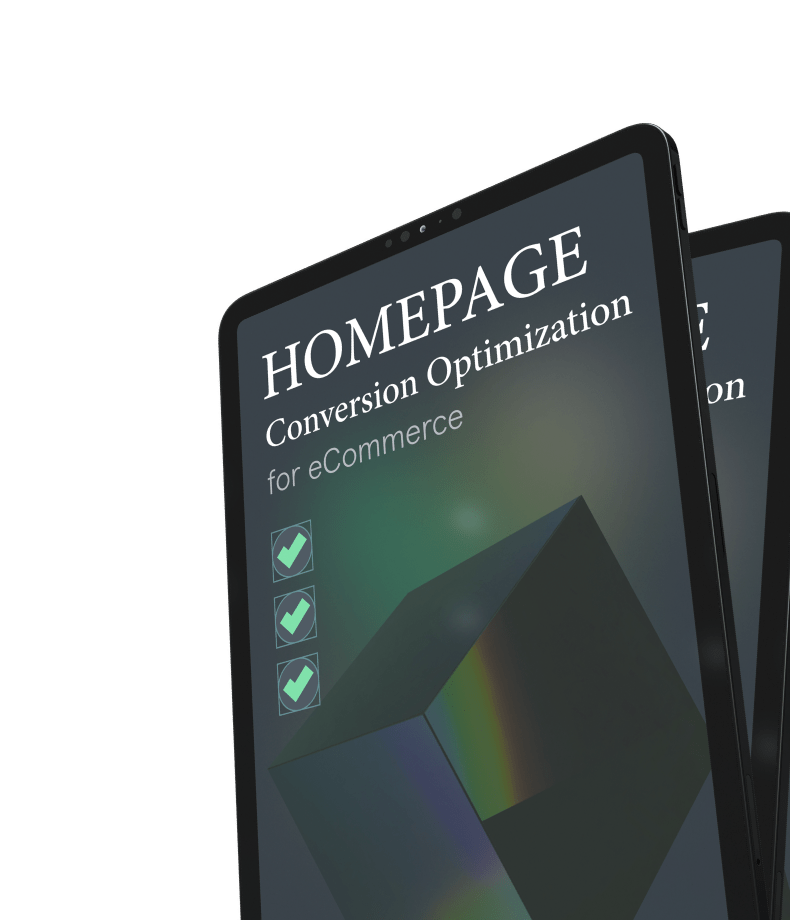Your eCommerce website is functioning as expected, it is good-looking but you’re still struggling to increase traffic and make sales? The problem might lie in your lack of effective B2B eCommerce marketing strategies.
Approximately 75% of B2B product purchases are made through online channels, and this trend is expected to continue as buyers express a desire for increased online purchasing. By implementing the digital marketing strategies for B2B we gathered for you in our article, you can effectively redirect this flow of potential customers to your eCommerce store, foster customer loyalty, and enhance conversion rates.
Read on.
#1 Inbound marketing
Investing in search engine optimization (SEO) is a fundamental yet highly effective marketing approach for B2B eCommerce businesses. This strategy focuses on improving your website’s visibility and ranking for specific keywords across various search engines, particularly Google. This is crucial as search engines act as a gateway for potential leads who are actively seeking products to purchase.
Here are some instances of implementing this marketing strategy:
- Blogs
Publishing blog posts serves as a valuable content medium that significantly boosts brand awareness and enhances your website’s ranking on search engines.
- Premium content
Premium content encompasses resources such as podcasts, webinars, and presentations. These forms of content are highly regarded as exceptional inbound marketing tools for generating leads. Additionally, they contribute to elevating the authority and reputation of your website.
- Content upgrades
Enhancing existing blog posts requires less effort while still proving effective in achieving higher rankings on search engine results pages (SERPs). By optimizing these posts with targeted keywords and relevant, high-quality links, you can maximize their impact on your search engine visibility.
#2 Paid online advertising
Paid advertising is an effective method to boost website traffic and drive conversions for eCommerce businesses. Here are three paid approaches that can be utilized to increase traffic to your eCommerce site:
- Search Engine Advertising (SEA). If your SEO efforts are not yielding desired results or taking too long, SEA offers an alternative. By utilizing SEA, your business can automatically appear in front of target audiences actively searching for products or services similar to what you offer.
- Paid Social Media Advertising. This form of advertising allows you to tailor your campaigns to specific demographics such as interests, regions, languages, and more. Major social media platforms like LinkedIn, Facebook, and Twitter provide this service and have a vast user base, making it easier to enhance brand awareness and attract potential customers.
- Display Advertising. Display advertising involves using online billboards, banners, videos, or interactive elements to promote your eCommerce site and brand to online visitors on websites, mobile apps, or social media platforms. However, it is advisable to use this approach sparingly as it can be perceived as intrusive by users.
Optimization Sell more effectively with a fast Magento website and blow your competition out of the water.

#3 Reviews & testimonials
Reviews and testimonials provide social proof and reassurance to potential customers, showcasing the positive experiences of previous clients. By prominently featuring these testimonials on your website or product pages, you establish credibility and build trust with potential buyers. This strategy allows prospective B2B customers to gain insights into the quality, reliability, and effectiveness of your products or services.
Additionally, positive reviews and testimonials can help in driving conversions, as they act as influential factors in the decision-making process. Encouraging satisfied customers to share their experiences and actively soliciting feedback can contribute to a strong online reputation, foster customer loyalty, and ultimately boost sales in the B2B eCommerce space.
#4 Account-based marketing
Account-based marketing (ABM) is a powerful B2B eCommerce marketing strategy that focuses on targeting specific high-value accounts or companies rather than casting a wide net to attract a broad audience. With ABM, you tailor your marketing efforts to address the unique needs and pain points of individual accounts, creating personalized campaigns and experiences. This strategy allows you to build deeper relationships with key decision-makers and influencers within target accounts, effectively aligning your marketing and sales teams to maximize impact.
By understanding the specific challenges faced by each account, you can deliver highly relevant content, offers, and solutions that resonate with their specific needs. ABM helps in generating higher-quality leads, increasing customer engagement, and driving revenue growth in the B2B eCommerce sector by focusing resources on the most promising accounts that have a higher likelihood of conversion.
#5 Loyalty programs
Loyalty programs are a widely utilized and effective marketing strategy employed across various industries, including B2B eCommerce companies. In the B2B context, many buyers seek to establish long-term partnerships, making loyalty programs a valuable tool for fostering such relationships. Implementing a well-designed loyalty program with a focus on lifetime value can be instrumental in achieving this goal.
However, it is crucial to carefully plan and execute your loyalty program. Since it is a long-term offering, frequent changes to the incentives can negatively impact your reputation and the sense of commitment from customers. Consistency is key.
Here are some examples of loyalty programs that you can consider:
- Referral programs. Provide bonuses or discounts to customers who refer new clients to your business.
- Third-party and reseller programs. These loyalty programs aim to build a robust distribution network and enhance brand awareness by incentivizing third-party sellers and resellers.
- Tier incentive programs. Offered to repeat customers, tier incentive programs encourage increased spending by providing higher tiers with additional perks and benefits, motivating customers to strive for elevated tiers.
Lean about the state of headless in eCommerce

#6 Email marketing
With email marketing, you can deliver personalized and targeted messages directly to the inboxes of potential customers and existing clients. It allows you to build relationships, establish credibility, and provide valuable content such as product updates, industry insights, and exclusive offers.
By segmenting your email list based on various criteria, such as buyer personas or purchase history, you can tailor your messages to specific audience segments, increasing the relevance and effectiveness of your campaigns. Additionally, email marketing automation tools enable you to set up automated workflows, such as welcome emails, abandoned cart reminders, and post-purchase follow-ups, which streamline customer interactions and drive revenue.
There are various B2B email marketing strategies available for implementation:
- Personalization
Instead of sending generic email campaigns, utilize personalization and segmentation techniques to tailor messages to individual customers, increasing the likelihood of driving higher conversion rates.
- Cross-sell/Upsell сampaigns
By offering related or complementary products based on a customer’s previous purchase history, you can encourage repeat business and foster deeper customer relationships.
- Predictive-Buy campaigns
Leverage predictive analytics by analyzing customers’ historical purchase data to anticipate their future buying preferences. This allows you to proactively offer relevant products or services, enhancing the overall customer experience.
- Reactivation campaigns
Targeted specifically towards customers who have not made a purchase from your business in a while, reactivation campaigns aim to reignite their interest and bring them back as active customers.
Web Design Create a visually captivating and highly functional online store that drives conversions and sets you apart from the competition.

#7 Unique case studies
Creating unique case studies tailored to specific customer segments is an essential practice for B2B businesses. Case studies that highlight client testimonials and successes play a critical role in establishing trust and showcasing the benefits your business can offer.
By crafting case studies targeted at specific customer personas or segments, you can gain several advantages:
- Sales representatives can leverage these case studies as valuable tools when engaging with different customer segments, enhancing their effectiveness in driving conversions.
- Relevant industry case studies can be linked from sales and product pages on your website, directing potential customers to the most appropriate and compelling content.
- Utilizing keyword research, you can align a specific case study with relevant search terms used by the industry, ensuring that it appears in search results when they are actively seeking solutions.
- Promoting your case studies through PPC ads on social media platforms, search engines, and across the web allows you to attract more targeted traffic, reaching potential customers who are interested in the specific industry or solution featured in the case study.
Regardless of whether your business offers products or services, featuring your own B2B customers in case studies is an obvious choice. It’s crucial to remember to include links to your products and services on these pages, making it easy for interested prospects to explore further and potentially make a purchase.
#8 Influencer marketing
Influencer marketing is a valuable B2B eCommerce marketing strategy that involves partnering with industry influencers or experts to promote your products or services. By collaborating with influencers who have a strong reputation and a relevant audience, you can leverage their credibility and reach to increase brand awareness, establish thought leadership, and drive targeted traffic to your B2B eCommerce store.
Influencers can create content, such as sponsored blog posts, social media endorsements, or videos, showcasing your offerings and highlighting their benefits to their engaged audience. This strategy allows you to tap into the influencer’s loyal following, build trust with potential customers, and expand your reach within your specific B2B niche. Influencer marketing can be an effective way to connect with key decision-makers and generate quality leads, ultimately driving conversions and boosting your B2B eCommerce success.
#9 Marketing collateral
In the B2B realm, it is crucial for buyers to have confidence that the product they are considering is the perfect fit for their needs. Without the right information, the purchase may not meet their expectations. This is why providing additional materials such as product sheets, brochures, and installation guides becomes essential in guiding potential customers through the conversion process.
By offering such marketing collateral, whether accessed during their online store experience or through interactions with your sales team, you can instill a sense of trust and assurance in the buyer’s decision-making process.

#10 Social media marketing
Social media marketing is a powerful eCommerce marketing strategy that enables businesses to connect with their target audience, build brand awareness, and drive conversions. With billions of active users on platforms like Facebook, Instagram, LinkedIn, and Twitter, social media offers immense potential to reach and engage customers.
Through social media marketing, eCommerce businesses can create a strong online presence by sharing engaging content, product updates, promotions, and valuable insights. By building a community of followers, businesses can foster brand loyalty and encourage customer advocacy.
One key advantage of social media marketing is the ability to target specific demographics, interests, and behaviors. With advanced targeting options, businesses can ensure their messages reach the most relevant audience, increasing the likelihood of generating leads and driving sales.
Closing thoughts
Implementing effective B2B eCommerce marketing strategies is crucial for success in today’s competitive landscape. By combining a mix of strategies you can create a robust marketing ecosystem that drives traffic, engages target audiences, and converts leads into loyal customers.
Don’t forget to regularly review and revise these strategies to ensure their continued effectiveness. The digital landscape is constantly evolving, and customer preferences and behaviors can change over time. By monitoring key performance indicators, analyzing data, and soliciting feedback, you will be able to identify areas of improvement, make necessary adjustments, and optimize their strategies for better results.







